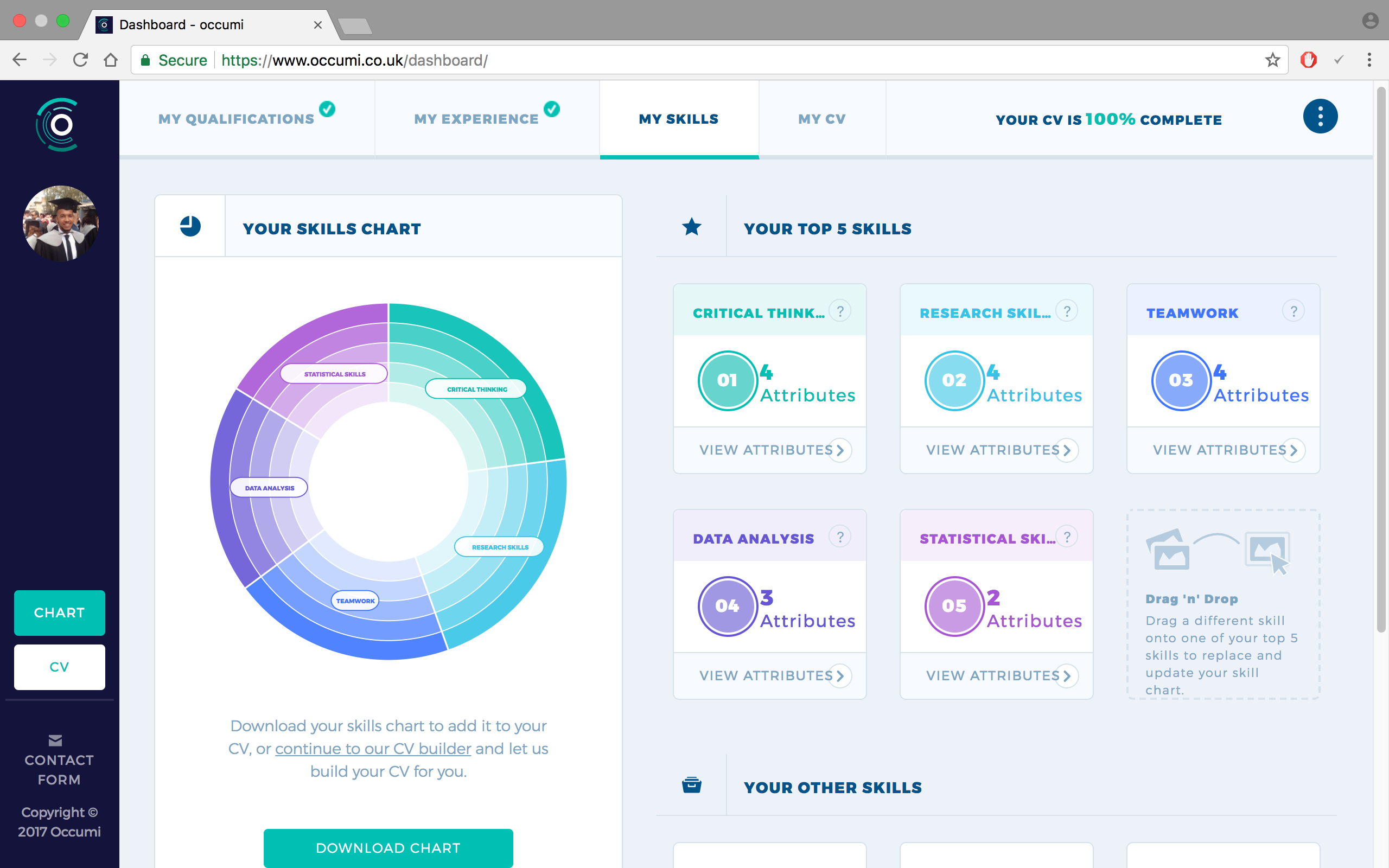“What is the point in this?!”
This is the question I asked myself over and over again whilst at university. No, this wasn’t the question I was asking myself during nights out in the student union bar… I was asking myself this question every time I had to write a 3000-word essay, cram loads of information in for an important exam, or try and organise a group presentation.
Like many students, I had gone to uni not really knowing what I wanted to do on the other side of it. But, like many students, I was pretty sure I did not want to directly pursue a career in my degree topic. I knew from an early stage in my degree that I did not want to go on to study psychology further or go into a psychology exclusive profession like being a therapist, or psychology lecturer.
Ultimately, I didn’t know what transferable skills I was developing during my degree, nor did I know how I could utilise these skills to help me get started in a career.
This is a problem that isn’t only exclusive to my second-year self, it’s a widespread problem across a large number of students and graduates, especially those who are the first in their family to attend university.

Why are transferable skills important?
In a nutshell… Employers want to see them.
Employers are now putting a greater impetus on students showing that they have developed other skills whilst at university, relating to skills that can realistically be transferred to the workplace (Donald et al. 2018) A report from Infosys went as far as to describe transferable skills as a ‘universal priority’ (Infosys, 2016).
There are a plethora of reports that highlight the importance of transferable skills in the future of the world of work. Many highlight the reason for the increased importance of these skills deriving from the increasing prevalence of artificial intelligence and automation changing the way that many companies, and many industries function.
Understanding Options
In order for students to truly understand their options after graduating, they need to know what skills they bring to the table themselves.
There are reports that suggest a lack of understanding around skills is resulting in students going into career paths that do not suit their skillset (Guardian, 2018). Not only is this harming businesses who have to deal with high turnover in graduate roles, but also the graduates themselves, who struggle to find roles that suit their skills.
Furthermore, research suggests that some students have an advantage when it comes to understanding there skills, and knowing what options are available to them. Many students do not realise just how many doors the skills they developed from their degree can open for them.
Those from widened participation backgrounds often find entering the graduate job market more difficult due to a lack of social capital, resulting in a lack of understanding about their own skills, and what skills employers are looking for (Budd, 2017).
Evidence suggests that students need help
In the past few years universities are beginning to put more significance on transferable skills, by for example, outlining them in course and module outlines (Universities UK, 2018). However, there is a growing body of research which suggests that more can be done in the area to add value to students.
It is often found that although students were found to be practicing more skills than they receive credit for, they found that students may not recognise these skills unless they are overtly flagged (e.g. Haigh et al, 1999).
Studies have also suggested that some students are better positioned to enter the graduate employment market than others. Those from widened participation backgrounds often find entering the graduate job market more difficult due to a lack of social capital, resulting in a lack of understanding about their own skills, and what skills employers are looking for (Budd, 2017).

Our solution
It was these problems that led to the development of Occumi. Occumi uses a unique algorithm to help students to identify and understand the transferable skills that they have developed from their educational qualifications and work experience.
Occumi works with University Careers services to help widen the positive impact these services are having on their student’s employability. Occumi is an efficient, cost effective way to help students identify the skills that they have developed from their education and work experience.
Occumi – Coming to universities academic year (2020/21).
For more information on Occumi, get in touch: josh.clarke@occumi.com

References
Donald W, Ashleigh M, Baruch Y. Students’ perceptions of education and employability. Career Development International. 2018;23(5):513-540.
Infosys. Amplifying Human Potential: Education and Skills for the Fourth Industrial Revolution [Internet]. 2016 p. 13. Available from: http://images.experienceinfosys.com/Web/Infosys/%7B8adf71d4-ce0c-48e1-829983e1dbd8c0c4%7D_Infosys-Amplifying-Human-Potentialnew.pdf?elqTrackId=dd2dc4dfc43b432683b7b3b80355353a&elqaid=1049&elqat=
Too many graduates are mismatched to their jobs. What’s going wrong? [Internet]. the Guardian. 2018 [cited 5 February 2019]. Available from: https://www.theguardian.com/higher-education-network/2018/jan/25/too-manygraduates-are-mismatched-to-their-jobs-whats-going-wrong
Universities UK. SOLVING FUTURE SKILLS CHALLENGES [Internet]. Universities UK; 2018. Available from: https://www.universitiesuk.ac.uk/policy-andanalysis/reports/Documents/2018/solving-future-skills-challenges.pdf
(1999) Student Perceptions of the Development of Personal Transferable Skills, Journal of Geography in Higher Education, 23:2, 195-206,DOI: 10.1080/03098269985461
(2017) Disadvantaged by degrees? How widening participation students are not only hindered in accessing HE, but also during – and after – university, Perspectives: Policy and Practice in Higher Education, 21:2-3, 111-116, DOI: 10.1080/13603108.2016.1169230

